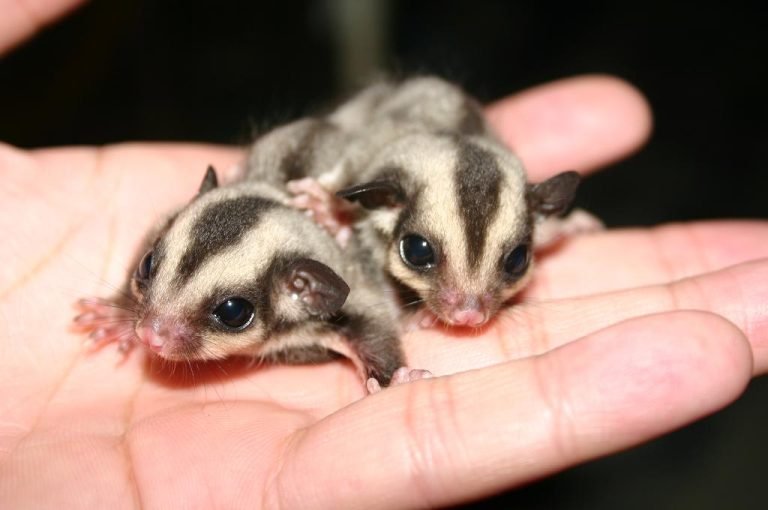What Do Sugar Gliders Eat As Pets
What do sugar gliders eat as pets?
If you are considering getting a sugar glider as a pet, you may be wondering what their diet consists of. Sugar gliders are small, nocturnal marsupials that are native to Australia, Indonesia, and New Guinea. In the wild, they have a varied diet that includes insects, nectar, fruit, and sap. As pets, it is important to replicate their natural diet as closely as possible to ensure they receive the proper nutrients.
What should you feed your sugar glider?
1. High-quality commercial diets:
One of the easiest ways to ensure your sugar glider gets a balanced diet is by providing them with a high-quality commercial diet specifically formulated for sugar gliders. These diets usually come in pellet form and contain a mix of fruits, vegetables, proteins, and essential vitamins and minerals. Look for a diet that is low in fat and sugar and high in protein and fiber.
2. Fresh fruits and vegetables:
Alongside their commercial diet, sugar gliders should also be provided with fresh fruits and vegetables. Some suitable options include apples, bananas, berries, carrots, spinach, and bell peppers. These should be washed thoroughly and cut into small, bite-sized pieces to make it easier for the gliders to eat. Be sure to remove any seeds or pits, as they can be harmful to your pet.

3. Protein-rich foods:
Protein is an essential part of a sugar glider’s diet, as they are omnivorous animals. In the wild, they would consume insects and small vertebrates to meet their protein requirements. As a pet owner, you can provide them with protein-rich foods such as mealworms, crickets, boiled chicken, or scrambled eggs. However, it is important to ensure that these foods are always cooked and free from any seasoning or additives.
4. Nectar and honey:
Sugar gliders have a sweet tooth and are natural nectar eaters. While they should not rely solely on nectar or honey for their nutrition, it can be offered as a treat occasionally. You can provide them with a small amount of honey or nectar from flowers, but make sure it is pure and free from any preservatives or artificial additives.
5. Calcium supplements:
Calcium is an important mineral for sugar gliders, as it helps support their bone health. In addition to their regular diet, it is recommended to provide them with calcium supplements. These can come in the form of powdered calcium or calcium-enriched treats. Consult with a veterinarian to determine the appropriate dosage for your sugar glider’s needs.
What should you avoid feeding your sugar glider?
While it is important to know what to feed your sugar glider, it is equally important to understand what foods to avoid. Some foods can be harmful or even toxic to sugar gliders and should never be included in their diet. These include:
Avocado: Avocados contain a toxin called persin, which can be fatal to sugar gliders.
Chocolate: Chocolate contains theobromine, which is toxic to sugar gliders.
Caffeine: Caffeinated beverages and foods should be kept away from sugar gliders, as they can have adverse effects on their health.
Onions and garlic: These foods can be toxic to sugar gliders and should be avoided.
Processed foods: Sugar gliders should not be given processed foods, such as chips, candy, or sugary treats.
Frequently Asked Questions
Q: Can sugar gliders eat meat?
A: Yes, sugar gliders are omnivorous and can eat small amounts of cooked, unseasoned meat as a source of protein. However, this should be a small part of their diet and not the main source of nutrition.
Q: Can sugar gliders eat nuts?
A: While some nuts are safe for sugar gliders to eat, they should be given in moderation. Nuts like almonds, walnuts, and pecans can be offered as treats, but they should be unsalted and given sparingly due to their high fat content.
Q: Can sugar gliders eat dairy products?
A: Sugar gliders are lactose intolerant and should not be given dairy products. Milk, cheese, and yogurt can cause digestive issues and should be avoided.
Q: Can sugar gliders eat bread?
A: Bread is not a suitable food for sugar gliders. It lacks the essential nutrients they need and can cause digestive problems. Stick to a diet of fresh fruits, vegetables, proteins, and a high-quality commercial diet.
Final Thoughts
Providing a balanced and varied diet is essential for keeping your sugar glider healthy and happy. Remember to offer a high-quality commercial diet, fresh fruits and vegetables, protein-rich foods, and supplements when needed. Avoid feeding them foods that are toxic or harmful, and always consult with a veterinarian if you have any concerns about their diet. With the right nutrition, your sugar glider will thrive as a beloved pet.







